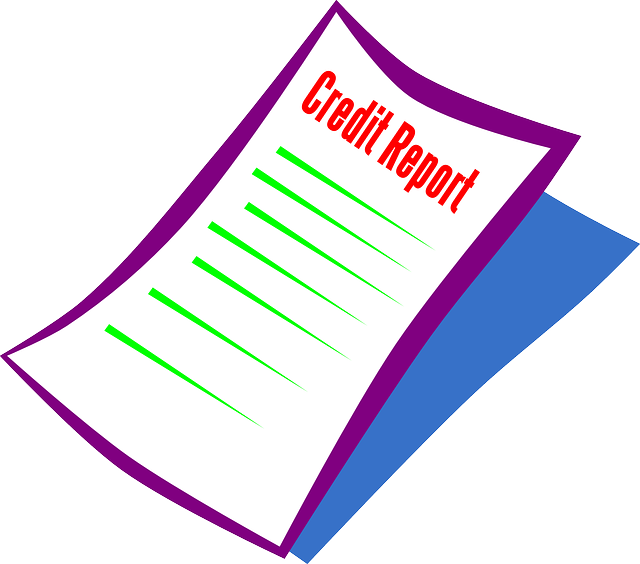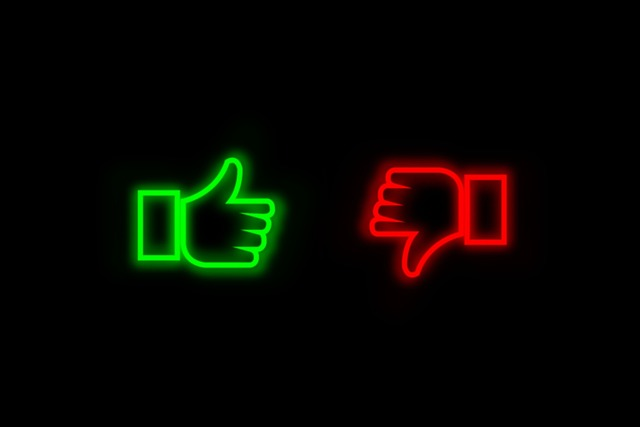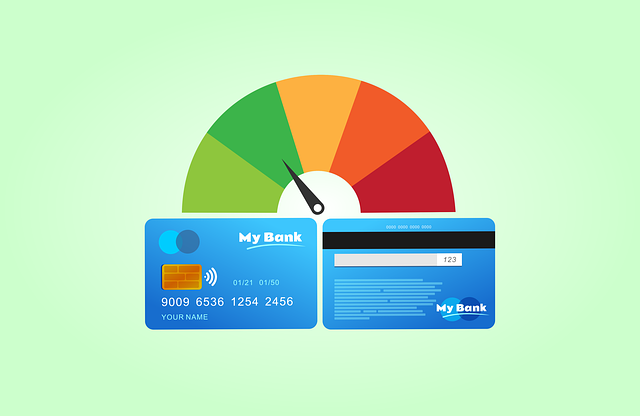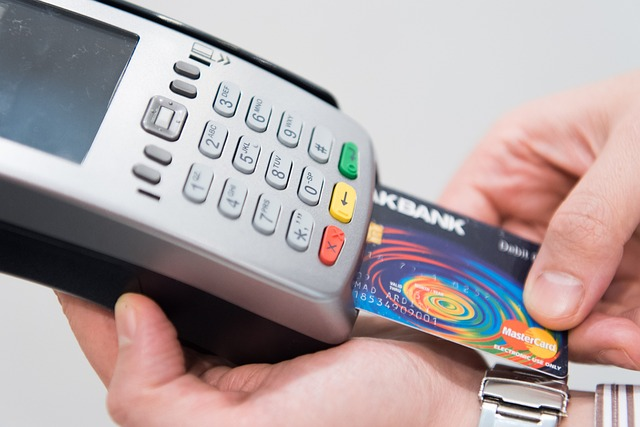What are Credit Scores?

Your credit score is a three-digit number that lets lenders quickly access the risk level of lending you money, called your creditworthiness. Your credit score is tied to your social security number and stays with you throughout your life. Credit scores change frequently.
A higher credit score indicates a borrower is more likely to repay a loan and make on-time payments, while a low credit score indicates a borrower is less likely to make loan payments.
The three main credit bureaus for credit reports and scoring are Experian, TransUnion, and Equifax. Those three credit reporting agencies own most of the market share for collecting, analyzing, and distributing consumer credit information. Credit scoring models vary by credit bureau.
FICO Scores
The most commonly used credit score is the FICO® score. Over 90% of the top lenders use FICO scores every day to make financing decisions. FICO scores range from 300-850. The average FICO score in the US is 714.
Your FICO credit score varies at each of the three credit bureaus because each calculates your score differently based on its credit report for you. In addition, there are separate versions or variations of FICO scores for different aspects of lending. For example, some lenders might use your FICO Score 2 for a mortgage loan, while others use FICO Score 4 or FICO Score 5.
FICO developed the FICO score model in 1989 when the enterprise was still called Fair, Isaac, and Company.
VantageScores
The three major credit bureaus developed the VantageScore® scoring model in 2006 to standardize the consumer credit score model. Your VantageScore is the same number at all three credit bureaus.
FICO remains the dominant credit score in financing, but VantageScore has gained market share since its introduction. Credit scoring models often compare your credit activity with the credit behavior of individuals with similar profiles.
Business Credit Score
As a small business owner, you should also be aware that your business has its own credit score. However, business credit scores work much differently than consumer credit scores. See our essential guide on business credit scores for more information.
What’s a Good Credit Score or Bad Credit Score?
There’s no specific cutoff for the defining line between a good and bad credit score. The most commonly recognized credit score ranges are:
- Excellent: 800+.
- Very good: 740-799.
- Good: 670-739.
- Fair: 580-669.
- Poor: 300-579.
However, most lenders set their own criteria for a good or bad credit score.
Why are Credit Scores important?
Credit scores are a significant determining factor when you need to borrow money. Examples include mortgages, auto loans, rental or car leases, personal loans, and small business loans. It’s a vital part of managing personal finance decisions.
Lenders always consider their risk level when reviewing a loan request. A high credit score means low risk, while a low credit score means high risk. Many lenders have a minimum credit score requirement, which is their cutoff for eligible borrowers.
Your credit score directly impacts your approval and the interest rate you receive. Bad credit borrowers might have to get a cosigner, make a larger down payment, or put up more collateral to offset their credit risk level.
Some utility companies might also review your credit history to see if you must make a down payment. Auto insurance companies often consider your credit scores as one of their risk factors when determining your premium.
It can also impact employment. An employer might look at an applicant’s credit score to assess reliability.
How do Credit Scores work?
Your credit score is based on the information in your credit report, which includes your open accounts, loan history, credit usage, payment history, and more. Each factor comprises a percentage of your credit score:
- Payment history: 35%.
- Credit utilization: 30%.
- Credit history: 15%.
- Credit mix: 10%.
- New credit: 10%.
Payment History: This category measures your track record of paying bills. It accounts for any late payments and how late they were. On-time payments will gradually raise your score over time. Late payments, and defaults, can quickly lower your score.
Credit Utilization: Your credit usage, or utilization, is your current debt burden. This measure uses the credit utilization ratio, the percentage of your existing debt over your available credit. For example, if you have a credit limit of $10,000 and have $2,000 in debt ($2,000/$10,000), your utilization ratio is 20%. A credit utilization ratio over 30% will negatively impact your credit score.
Account history: This refers to how long your accounts have been active. It’s sometimes called credit history, length of credit history, or “time in file.” The longer an account is open, the more positive impact it has on your credit score. Most credit bureaus use an average account history length.
For example, if you have three accounts, one open for 10 years, one open for 6 years, and one open for 5 years, you’d take the sum (21) and divide it by the number of accounts (3), to get at an average account history of 7 years. Most accounts five years or older help build credit. A FICO study revealed that people with a credit score in the 800-850 range have an average account history of 128 months (a little over 10.5 years).
Credit mix: Successfully managing different types of credit can help improve a credit score. Types of credit include installment loans, revolving credit such as credit card accounts, consumer credit, and mortgages.
New credit: Applying to open a new credit account results in a hard credit inquiry, which can lower your credit score. You should avoid opening too many accounts simultaneously to avoid too many hard credit pulls.
How do personal credit scores impact Small Business Loans?

Your personal credit score plays a role in business loans as well. Commercial lenders look at a small business owner’s personal credit score and the business’s credit score. The personal credit score is weighed more heavily for sole proprietors or younger businesses that haven’t established business credit.
As with consumer financing, a higher credit score means more loan options, higher approval rates, and lower interest rates. A lower score means fewer options, lower approval rates, and higher interest rates.
Small business owners must know their credit score and financial health before applying for a business loan. If you have poor credit, you might want to take steps to boost your credit score before applying.
Frequently Asked Questions

Here are the most common questions about credit scores.
How is my Credit Report related to my Credit Score?
The credit bureaus calculate your credit score based on the information in your credit report. The information in your credit report comes from the various financial services, accounts, or bills you pay. Credit cards, loans, mortgages, and other credit-based accounts are almost always reported. Most banks or credit card companies issue a monthly report to the credit bureaus.
Some bills, like utilities, rent, and subscriptions, may get reported. Utility bills are more commonly reported but not always. You can also use a service like Experian Boost® to add accounts that aren’t usually reported to your report. That can quickly increase your score if you have a positive payment history.
Credit reports also contain personally identifiable information (PII) such as your date of birth, address and previous addresses, name changes or aliases, marital status, and employment history. Your credit report is private and protected by the Fair Credit Reporting Act (FCRA). The general public cannot access your report. Most organizations need your written consent or a legally permissible reason defined by the FCRA to access your report.
How can I improve my Credit Score?
You can take the following actions to boost your credit score:
Pay down debt: Credit utilization refers to the percentage of your available credit you’re currently using. Credit utilization below 30% is considered ideal. If your utilization is higher than that, paying down your debt to get below 30% can quickly improve your score. You can also try opening new credit accounts to increase your available limit but be careful, as too many new accounts can temporarily hurt your credit score.
On-Time Payments: Making your payments on time and in full helps build and improve credit. Ensure you don’t miss any payments before applying for a business loan. If your report shows late payments, but you’re currently caught up, you can try contacting the financial company to see if they’ll remove the late payment from your report.
Keep Credit Accounts Open: The age of your credit accounts makes up 15% of your credit score. Don’t close any of your older accounts before applying for new credit.
Credit Variety: Having various types of credit, including credit cards or other revolving credit accounts, personal loans, auto loans, mortgage loans, etc., also helps improve credit scores. Again though, be careful opening new accounts.
Are Credit Score monitoring services worth it?
A credit monitoring service can help you keep track of your credit health. There are free credit monitoring services and ones you can get at cost. Some banks, credit card companies, or other services may offer free credit scores and monitoring as part of your membership.
Credit monitoring services usually alert you about credit report changes that could impact your score. Examples include:
- Credit score changes (increases or decreases).
- Hard credit inquiries.
- New account openings.
- Adjustments to credit card balances.
- Updates to your credit utilization ratio.
- Late payment reports.
- New derogatory credit information
- Updates to PII (address change, name change, etc.).
- Different credit scores at the three bureaus.
Some paid credit monitoring services include enhanced services like identity theft protection or locking or freezing your credit report. That prevents financing companies or anyone else from pulling your report. These enhanced services might be worth it if your information (such as your SSN) has been compromised.
You can also conduct your own credit monitoring without using a service. Everyone gets one free credit report per year at www.AnnualCreditReport.com. However, DIY credit monitoring is time-consuming and requires discipline to monitor your account continually. In addition, the report does not include a free credit score.
Deciding if credit monitoring services are worth it is a personal decision. If you know your credit score is good to excellent, then it might not be necessary. If you’re actively building credit, a monitoring service can help. Some will provide customized plans to help you boost your score.
Whether you use a service or monitor your credit yourself, keeping track of your credit reports is essential. Erroneous or incorrect reports can happen. A Federal Trade Commission (FTC) study revealed that 25% of consumers identified errors in their credit reports that could affect their credit scores.
Are there Business Loans for Bad Credit?
Yes, there are business loans for bad credit. You’ll sometimes see these listed as “bad credit business loans” or “business loans with bad credit.”
However, getting a business loan with bad credit is more challenging. You’ll likely have to apply to an alternative online lender or marketplace, like UCS. Traditional lenders like banks and credit unions usually won’t issue a bad credit business loan.
In addition to having fewer loan options, small business loans for bad credit usually have lower credit limits, higher interest rates, additional fees, shorter terms, and frequent payments. One way to think of a business loan for bad credit is as a form of bridge financing.
Bad credit business loans can provide short-term financing to help support operations. Your credit could improve as you pay off the loan and grow the business. Once you have a better credit score, a longer time in business, and higher revenue, you can qualify for a longer-term, lower-cost loan. In some cases, you can use the long-term loan funds to pay off the bad credit business loan.
See our Best Business Loans for Bad Credit essential guide for more information.
Bad Credit Business Loan Pros & Cons

Pros:
- Accessible financing for borrowers with a low credit score.
- Could potentially help build or repair credit with timely payments.
- Might be able to use the funds to pay off existing debt.
- Quick and easy online applications.
- Usually fast approval and funding times.
Cons:
- Higher interest rates & fees than conventional loans.
- Lower borrowing amounts than traditional business loans.
- Typically short-term financing with frequent repayments.
- Might require collateral or a personal guarantee.
- Could require automatic payment withdrawals.
- Fewer options for lenders and loan types.
Credit Score Meaning – Final Thoughts

Credit scores influence loan options, approval rates, costs, and terms for both consumer and business financing. As a small business owner, you want to protect your score to increase your small business loan options to fuel your business growth.
You should monitor your credit, whether you do it yourself or use a monitoring service. Ensure you keep credit usage below 30%, make payments on time, and maintain a good mix of credit. Monitoring your credit report also helps with removing incorrect or outdated items that could negatively affect your credit score.
Contact us if you have more questions on credit scores or to apply for a small business loan. Our business loan experts can help you find the best business funding options for your credit score.











